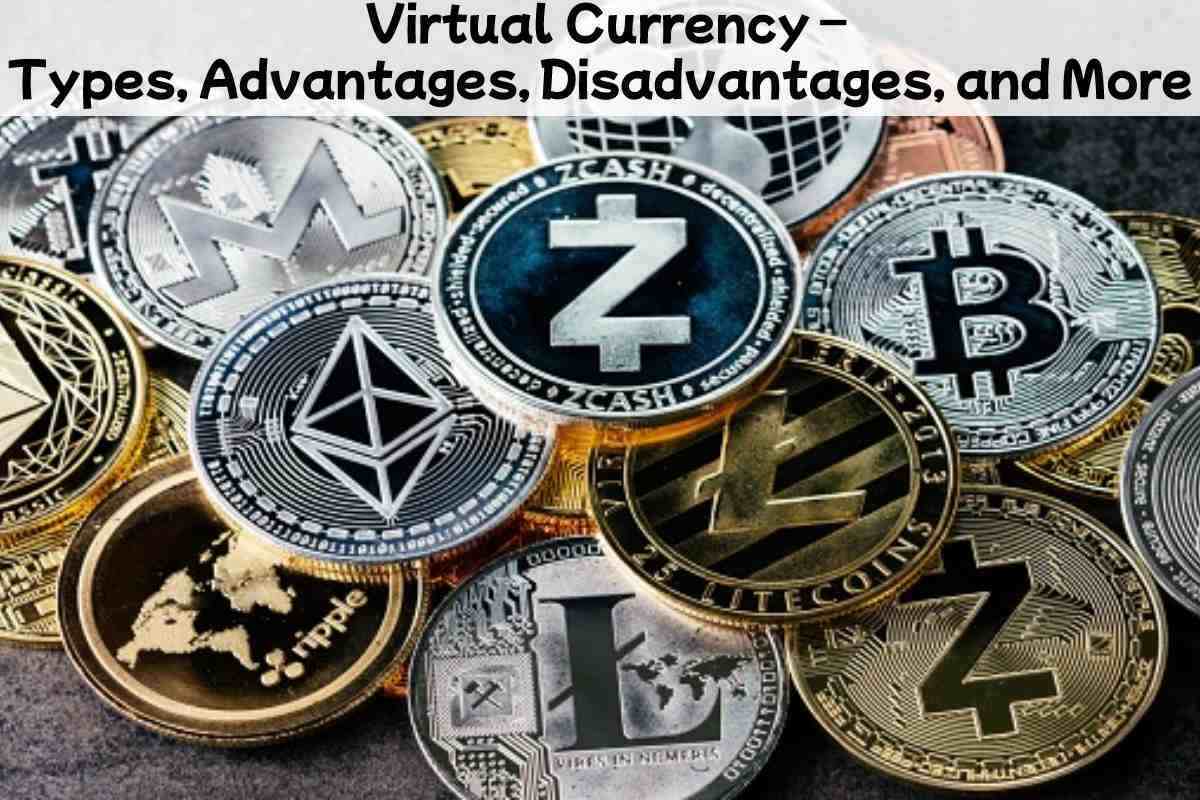Table of Contents
Virtual Currency
Virtual currency is a digital illustration of value only available in electronic form—stores and trades through specific software, mobile, or computer applications. This type of currency trading occurs over a secure, dedicated network or the Internet. They are issued by individual groups or parties of designers and are mostly free.
These are a subset of digital currencies and include other types of digital currencies such as mine. Private organisations issue cryptocurrencies and tokens. And also, the benefits of it, which includes faster transaction speed and ease of use.
Types of virtual currency
Virtual currencies are classified according to their operating networks as follows:
Closed Virtual Currency
Closed cryptocurrencies, as the name suggests, operate in a controlled, private ecosystem. It cannot convert into any other virtual currencies or real fiat currencies. An example of a closed virtual currencies is the currency of a gaming system. These currencies can use in that environment (in this case, the game) but cannot be converted into real money. Another example of a closed virtual currencies is airline miles. Mileage issued by an individual may only be purchased as additional mileage and cannot be converted into the relevant monetary value.
Open Virtual Currency
Because virtual public currencies converting into other forms of money, they are also known as convertible virtual currencies. Although, they operate in an open ecosystem and for other currencies on or off the platform. Examples of virtual public currencies include stable coins and cryptocurrencies. For example, Ethereum and bitcoin, the two largest cryptocurrencies by market cap, are convertible to other cryptocurrencies or certain fiat currencies. This conversion process is considering and taxing by the IRS as a commercial transaction.
Also read :Food Chain Gizmo Answer Key: All The Answers You Need
Advantages Of Virtual Currency
- Virtual currencies are not expensive to manufacture and physical store.
- Virtual currency technology line speeds up transactions and removes geographic boundaries.
- Decentralized virtual currencies can eliminate intermediaries in monetary transactions and create a direct connection between two trading parties.
- Cryptocurrency can be programming to complete automating transactions. For example, smart contracts on the Ethereum blockchain can hold and release funds in escrow accounts without human intervention.
- Virtual currency is a digital repository of value, which assign to different groups of objects, from chips to works of art.
Disadvantages Of Virtual Currency
- Virtual currencies are attractive targets for hackers. Cryptocurrency, virtual currency, and blockchain networks have been hacking for several times.
- Virtual currencies has no manufacturing or physical storage costs, but other expenses are associating with it. For example, cryptocurrency users need to store it in a digital wallet. In addition, trading exchanges also incur storage costs for cryptocurrencies.
- Virtual currencies can be a target for fraud. Several Initial Coin Offerings (ICOs) became popular after cryptocurrency prices skyrocketed were scams. It was a private developer selling worthless tokens to a virtual network. Tickets can`t exchange for other currencies.
- Unregulate virtual currency is issuing by private companies and does not provide any compensation to investors as financial establishments do not structure it.
- Virtual currencies have been trading on exchanges, such as cryptocurrencies, which can fluctuate significantly in price.
conclusion
Virtual currency, is a digital currency issued mostly unregulated, usually controlled by a developer, and used and accepted electronically by members of a specific virtual community. Several common themes and trends emerged from various experts interviewed from 10 countries. First, existing laws did not initially provide virtual currencies’ features with unique technical and economic details.
Second, best practices for donors and recipients (i.e., “document, disclose, or reject”) are helpful in most in-kind donations, be it works of art or Bitcoin. Third, in many countries, there is some grade of inaccuracy and apparent uncertainty about how specific legal requirements intersect or apply to cryptocurrencies. Fourth, the broader political landscape reflects that we are in a relatively early stage for cryptocurrencies, and regulators often prefer to monitor and adopt selective enforcement actions closely. Finally, in quantitative terms, virtual cash donations are relatively insignificant comparing with conventional cash donations.
Also read : WHAT VIRUSES CAN TREAT WITH THE HYPERBARIC SPACE

